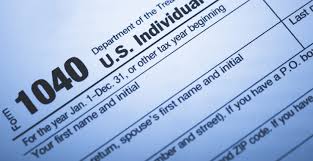weekly column
|
Each week, find a commentary on something connected to verses of Torah or another source of wisdom
|
|
Each week, find a commentary on something connected to verses of Torah or another source of wisdom
|
 The Numbers:13 Project The first fruits of everything in their land, that they bring to the LORD, shall be yours; everyone of your household who is clean may eat them. Numbers 18:13 I am in favor of taxes. That’s not to say that I enjoy paying taxes, but life is not always about enjoyment. There are all sorts of things that are intrusions, annoyances or momentarily unpleasant, but that does not make them objectionable. Vaccinations, tooth x-rays, ironing, buying car insurance, cleaning out the junk drawer in the kitchen – I could go on and on. Some things just have to be done even if the Cubs are on TV or it’s a beautiful day for a bike ride or, to the point, I would rather use that money for what I choose. Here is why I am in favor of taxes: I believe in the goodness of government. I mean that sentence in both of its interpretations. I believe that government is a good thing. And I believe that government should be good. It is impossible to promote goodness of and by government if it does not have the resources. To be sure, there are times that government squanders the money it receives and therefore damages the trust it needs from citizens. Swindles and boondoggles make a lot of headlines. Every now and then, when some official builds a soundproof phone booth in his office or buys a thousand-dollar stapler, people are rightly outraged. We can argue back and forth about whether it makes more sense to prioritize better roads and bridges over safer foods and drugs, but the people on the opposite side will inevitably complain about misdirected funds. And as matters of principle, there are those who will object to what they earn being confiscated for activities they do not support. Yet I will argue that, with very few exceptions, those are superficial objections, no matter the amount of money involved. Overwhelmingly, tax dollars go to support the goodness of government. Public safety, education, sanitation, common space and, not incidentally, the judicial system rely on a collective pool of money to underwrite their functions. When they fail, it is at least as much the result of inadequate resources as it is of any shortcomings of the system. The list of essential functions of government – as well as less-essential but desirable – is much longer, if government is to be good in function as well as in functioning. Perhaps more important, though, is that government of the people, by the people and for the people consists of, well, people. Civil servants, appointed officials, elected legislators and functionaries are all citizens who themselves rely on the sustenance that comes from their service to support those of us who expect to be taken care of by the public sector. Some few of them fall short (and I do not minimize that citizens victimized by corrupt or incompetent public servants suffer assaults not only on their person but on their trust). But most do so well that the rest of us can pretend they are unnecessary. That’s where tax dollars really go: to people. They go to enable good people to do good jobs for good government. In a movie from 35 years ago (eek), “The Big Chill,” Kevin Kline and William Hurt encounter a police officer. Hurt, a visitor to the town, challenges his old college buddy Kline on being friendly with the cop. Kline responds by calling him stupid and continues, “First off, that cop has twice kept this house from being ripped off. Happens to be a hell of a guy.” I have no patience for arguments that all taxes are bad, or that I should be exempted from any tax that doesn’t provide me a direct benefit. (I am talking to my generation when they complain about paying for the schools they no longer attend or send their kids to attend.) Firefighters have mortgages, government secretaries have medical bills, food inspectors pay tuition, toll collectors like theater, researchers take vacations and teachers need to eat. Just like the rest of us. In a society like ours, where each citizen is enfranchised in electing the people who make the laws and apportion the funds, it ought to be considered a privilege to pay taxes. You don’t have to enjoy it, but it ought to be more than just a crime to avoid it. It ought to be considered morally reprehensible, and most certainly a disqualification for presuming to spend anybody else’s taxes. The first fruits and other offerings brought to the Temple were not used to feed God. They were used to sustain the public functionaries who cared for the citizens who delivered them. The Temple was there to serve the people, just as the people were there to serve their Creator. Out of that ethos, I am in favor of taxes, because I believe in the goodness of government.
0 Comments
Leave a Reply. |
Archives
October 2023
Categories |